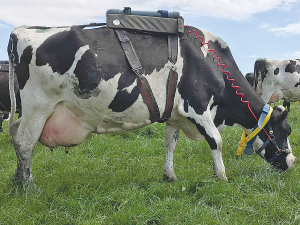Simon Upton urges cross-party consensus on New Zealand environmental goals
Parliamentary Commissioner for the Environment Simon Upton is calling for cross-party consensus on the country's overarching environmental goals.
 The review has called for an ‘urgent acceleration’ in mitigating rural sector greenhouse gas emissions.
The review has called for an ‘urgent acceleration’ in mitigating rural sector greenhouse gas emissions.
A new review is calling for “urgent acceleration” in developing greenhouse gas mitigations for use in the primary sector.
The call is contained in a review by the New Zealand Agricultural Greenhouse Gas Research Centre (NZAGRC).
The centre says it has succeeded in fulfilling its initial brief, but “is yet to provide useful mitigations” of greenhouse gases (GHG) for farmers to use.
“A summary of available approaches, many of which could be seen as farming best practice, indicates they would probably amount to no more than a 10% reduction in emissions at best,” the review says.
“Some approaches such as low GHG feeds and low methane sheep are nearing market-ready status, but others with potential high impact – such as inhibitors and vaccines – have still a way to go.
“With Paris Agreement targets, new policies looming and increasing consumer and environmental pressure, there is a need for urgent acceleration of programmes if the NZ primary sector is to respond as required to remain viable in a low carbon world.”
The NZAGRC is a partnership launched in 2010 by NZ agricultural greenhouse gas researchers and the Pastoral Greenhouse Gas Research Consortium (PGGRC).
It is largely funded by the Ministry for Primary Industries (MPI) through a contract due to expire in June but with an agreed extension to 2020.
The review was done under the terms of NZAGRC’s contract with MPI by a panel of NZ and Australian experts and stakeholders.
Their report said the centre maintains high quality in its research, publications, collaborative programming, national and international science relationships and personnel expertise, and had built a high quality international profile.
However, it says the actual impact of the science on reducing NZ greenhouse gas emissions is still to be realised.
“There is still a shortfall in feasible and practical mitigation options. This is recognised internationally as a scientifically challenging area for the agriculture sector.
“Our discussions with stakeholders and our own views strongly support the need for the research by NZAGRC to continue and to expand significantly, given the scale of the challenge and opportunities. The past investment will be lost if the promising research is not supported into the future.
“There are substantial risks for the primary sector from market responses, new policy development and public pressure that must drive future GHG research and product development. This is a stance strongly supported by stakeholders.”
NZAGRC director Dr Harry Clark welcomed the report, noting that it strongly endorsed the research programme’s performance to date.
“New Zealand is a small country, but we punch above our weight in climate change-related agricultural research. The reviewers noted the high quality research and international recognition enabled by the NZAGRC through showcasing its scientific activities and capability internationally.”
The panel called for a more integrated research structure that encompasses science, extension and commercialisation. “Greenhouse gas research should not be seen in isolation from broader issues within the sector, e.g. water, nutrients, diversification and land use decisions. Therefore, future structures should account for this.”
It also calls for a review of the centre’s scope, noting that forestry, for example, is currently excluded.
“There is little emphasis on horticulture and cropping and other changing land use initiatives. It is difficult to envisage a future greenhouse gas centre which is not working on -- or at least is in partnership with others working on -- forestry, use of trees in farming systems, other plant crops and management systems, initiatives on water and nutrient leaching, trade-offs and offsets in management practices, etc.”
Meanwhile, the report acknowledged the excellent working relationship between the centre and the PGGRC, but said that looking ahead there seemed “no logic” in maintaining them as separate entities.
“A single, integrated entity would better support an effective future in greenhouse gas research and mitigation.”
The PGGRC is funded by DairyNZ, Beef + Lamb NZ, PGGWrightson and others, matched dollar-for-dollar by MBIE. The report says any merged entity would have to maintain continued industry engagement and co-funding.
New Zealand and Chile have signed a new arrangement designed to boost agricultural cooperation and drive sector success.
New DairyNZ research will help farmers mitigate the impacts of heat stress on herds in high-risk regions of the country.
Budou are being picked now in Bridge Pā, the most intense and exciting time of the year for the Greencollar team – and the harvest of the finest eating grapes is weeks earlier than expected.
The Real Estate Institute of New Zealand (REINZ) has released its latest rural property report, providing a detailed view of New Zealand’s rural real estate market for the 12 months ending December 2025.
Rural retailer Farmlands has released it's latest round of half-year results, labeling it as evidence that its five-year strategy is delivering on financial performance and better value for members.
OPINION: "We are back to where we were a year ago," according to a leading banking analyst in the UK, referring to US president Donald Trump's latest imposition of a global 10% tariff on all exports into the US.

OPINION: A mate of yours truly reckons rural Manawatu families are the latest to suffer under what he calls the…
OPINION: If old Winston Peters thinks building trade relations with new nations, such as India, isn't a necessary investment in…